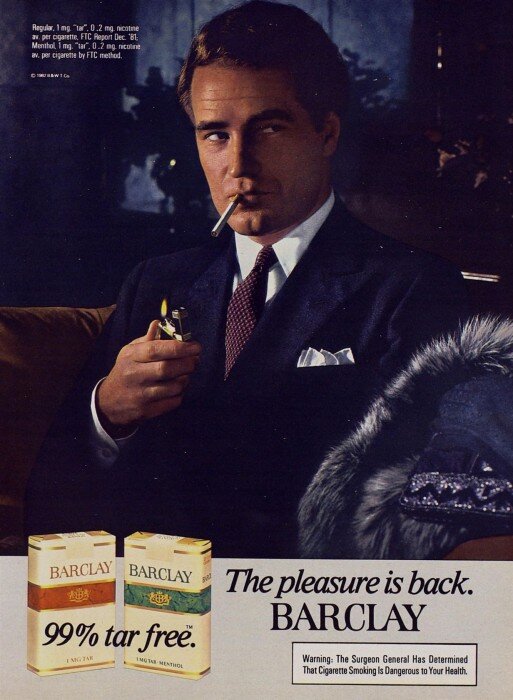
Welcome to the Partisan Advertising blog.
The Partisan Advertising blog has advertising agency-related posts dating back to 2010 covering a vast array of topics.
Should Brands Use Facebook?
Should Brands Use Facebook? There is no simple answer to this question.
Every form of mass media that has ever been used for advertising purposes was never created for advertising. When Tim Berners-Lee developed the Internet he didn’t do it so he could see ads popping up. Likewise for the inventors of the television, the radio, and the printing press. Advertising came along after the fact. And this is also true of Facebook.
Traditional marketing has always been about the numbers:
How many people are watching a TV show?
How many people read a magazine?
How many people listen to a radio station?
The bigger the numbers, the more advertisers are prepared to do to get in front of all those people. And that often means paying heaps to be there.
So you can imagine the excitement amongst the first global brands that advertised on Facebook a few years back. The numbers were huge and the cost to reach them was tiny when compared to producing and flighting an ad for the Superbowl.
But do those high numbers translate into sales?
Let’s look at an example.
I worked at one of New Zealand’s larger clothing companies. They were really good at measuring the effectiveness of their marketing material and they tracked all their printed and online activity meticulously
So one day we were in a meeting discussing Facebook, and one of the online account managers was very happy because the company had just racked up more than 15000 likes. This made everyone happy, especially top-level management. But those likes were not translating into sales. On average, only 2% of those likes purchased anything from the online store during any given month. And to make matters worse, the company routinely got an 80% or higher purchase rate from their mail-order catalogues.
There are possibly dozens of reasons for this, but the root of the problem is the fact that Facebook is an extremely social place, and thus it comes with its own, often volatile, cocktail of emotions. We go to Facebook to share our lives and to peak into the lives of others. It’s only logical that this environment will have a few psychological factors affecting it.
A recent study done by two German Universities proves this fact. According to their research, Facebook is rampant with envy simply because Facebook has produced an unprecedented platform for social comparison.
The researchers found that one in three people felt worse after visiting the site and more dissatisfied with their lives, while people who browsed without contributing were affected the most. Research showed that many people have a negative experience with Facebook in regards to envy, which leaves them feeling lonely, frustrated or angry, leading people to leave Facebook or at least reduce their use of the site.
The biggest causes of resentment were:
Vacation photos - with more than half of envy incidents triggered by holiday snaps on Facebook
Social interaction was the second most common cause of envy as users could compare how popular they were i.e. how many birthday greetings they received to those of their Facebook friends and how many "likes" or comments were made on photos and postings.
They found people aged in their mid-30s were most likely to envy family happiness
While women were more likely to envy physical attractiveness.
These feelings of envy were found to prompt some users to boast more about their achievements on Facebook and to portray themselves in a better light i.e. lie about themselves.
Men were shown to post more self-promotional content on Facebook to let people know about their accomplishments while women stressed their good looks and social lives.
The researchers said the respondents in both studies were German but they expected the findings to hold internationally as envy is a universal emotion.
They said, "From a provider's perspective, our findings signal that users frequently perceive Facebook as a stressful environment, which may, in the long-run, endanger platform sustainability.”
We all know that this research is true. Humanity is a social mix of dizzying highs and dreadful lows and it’s no more apparent than on Facebook.
So should brands be on Facebook?
What you need to consider is:
Why do you want to be on Facebook? If it's for the numbers or because everyone else is doing it then you've made the wrong choice.
How are you going to connect? E-Cards, pics of kittens and special offers aren’t enough
How will you measure it? Facebook and social media is barely 10 years old so the metrics change all the time.
Most important: If you stopped your Facebook activity, how would it impact your business? Does anybody care enough about you being on Facebook?
The simplicity of cigarette advertising
I wonder what it was like, back in the halcyon days of advertising, when advertising agencies created advertising for the tobacco industry?
I wonder what it was like, back in the halcyon days of advertising, when advertising agencies created advertising for the tobacco industry?
Below are some great examples of what I consider to be a forgotten craft of creating simple messages that build brands and sell products. After all, cigarettes are a very bizarre product. Small white tubes, stuffed with dried grass and chemicals, are loved or loathed and consumed in vast numbers.
My father smoked on an irregular basis from his bar area on the other side of the house. I could always smell his lit cigarette from my bedroom. It was an inviting scent – masculine and strong. Whenever I smelt it I knew it was time to join my dad at the bar and listen to his stories and share how our days went. I’m not sure why he smoked but it didn’t bother me much. When my friends started to smoke, the scent of burning tobacco took on another emotion for me. They stank of stupidity and the entire house smelt terrible for days. I wasn’t a fan but that’s the power of marketing for you.
In my opinion, it was the advertising agencies who made these ads that are responsible for the success of the tobacco industry. If you want to know why good advertising is so important to your business, take a look at these ads. These simple advertisements created such a dynamic, emotive response in the reader that it was almost impossible to say no to them, regardless of the side effects.
How much are promises worth?
If you saw an ad for a restaurant and it said “We promise not to spit in your food”, would you be relieved or a little bit worried? Let’s say for instance that Air New Zealand ran an ad campaign and they said “We promise not to crash into the ocean”, would you choose them over another airline?
As consumers, we are entitled to take a few things for granted. Certain professions have an obligation to do the right thing. Assurances of saliva-free food and crash-free journeys shouldn’t have to be made by restaurants and airlines. What the restaurant should be promising is that they make the finest Ossobuco in the world, which is based on a 300-year-old family recipe that is closely guarded by the Mafia. The airline should be promising that they will always be on time, your luggage won’t be lost and that they won’t be retrenching thousands of local staff so they can outsource to Mumbai.
Any fool can make a promise. In fact, Bunnings and Mitre 10 Mega do it all the time with their price promises. However, the reality is they are cheating on the promise. Put simply, you have absolutely no chance of finding the same stocked item anywhere else in the galaxy. Either they’ve negotiated with their suppliers for the best rate or they are the only company that sells that specific product.
Consumers want something remarkable from promises, simply because all the best ones are so hard to keep.
I wonder if the good folk at BNZ Bank know this?
BNZ's latest ad campaign is all about the six promises they’ve made to help you be good with money.
They are:
We promise to listen, and help you make the right choices.
We promise to make things simple, so it’s easy to manage your money and make it grow.
We promise to provide fast, effective service, that’s right the first time.
We promise to recommend products and services that give you the best value.
We promise to be honest and straight up, at all times.
We promise if we stuff up for any reason, we’ll fix it and do right by you.
Does BNZ Bank really have to promise that they will be honest? Maybe I’m missing something but I always thought that banks and honesty should go together like Ken and Barbi. I guess not. And worst of all, their last promise is basically just a way to weasel out of their other five promises. And what exactly do they mean by "do right by you"? Will I get a cake if they stuff up?
What I would have preferred to see would be:
We promise that our investment bankers will not misappropriate your money and spend it on teenage hookers and cocaine in Bangkok
We promise that we will not complain about how hard the banking industry is when we’ve made $700 million dollars in profits in just one year
I could go on and on but the only promise they should make is:
We promise to offer the best interest rates, guaranteed.
Now that’s a remarkable promise, simply because it’s so hard (almost impossible) to keep. I can imagine the ad campaign already.
New Zealand’s Best Brand 2012 - FOUR
There’s something just right about the way FOUR have gone about their branding business this year. Sure, FOUR don’t have as wide a target as the other broadcasters, or as small a market as Rialto or the ARTS channel, but they really do a good job of appealing to their demographic.
There’s something just right about the way FOUR have gone about their branding business this year. Sure, FOUR doesn’t have as wide a target as the other broadcasters, or as small a market as Rialto or the ARTS channel, but they really do a good job of appealing to their demographic.
There’s something of an elegant solution in everything they do. From the way they use the beautiful Gotham font across their network, to their striking colours and their often awful movie choices, there’s not much to fault them with (except that Gotham is the most used font of the past decade). Every detail seems nuanced to the nth degree, which might seem odd based on their young(ish) target market. I guess the sophistication level of the average New Girl and Glee viewer isn’t what many people thought it was. Then again, I’m almost 40 and I’m sure FOUR is one of my most watched channels, just behind the Brainiac Bunch of National Geographic, Discovery Channel and Animal Planet.
Even though FOUR exist in my life at the mercy of the fast forward button, I still enjoy their company. And at the end of the day, that’s really all that matters in the relationship between consumers and their brands.
Merry Christmas!















